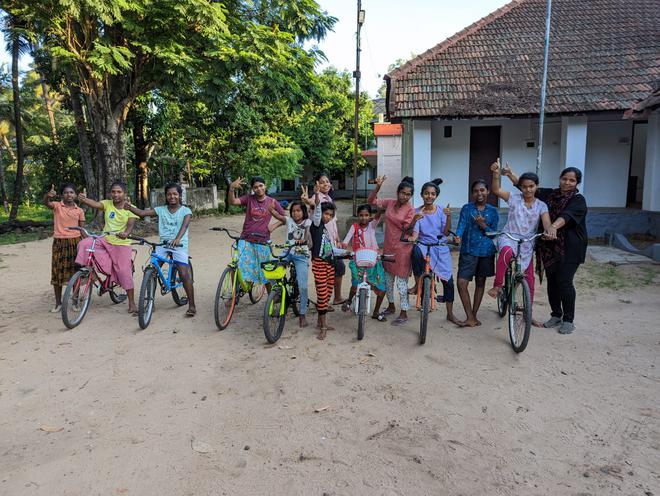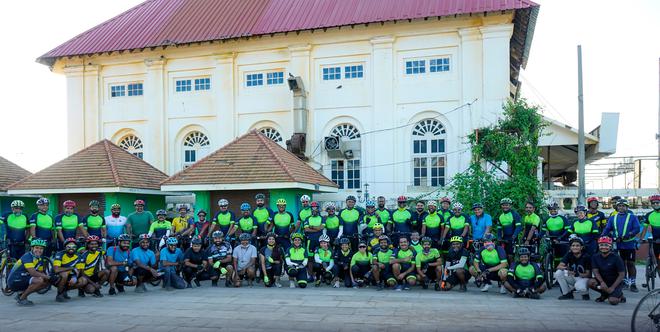As always Prakash P Gopinath, Bicycle Mayor of Thiruvananthapuram, has several plans to encourage more people to enjoy the ride, on a bicycle. On the occasion of World Bicycle Day today (June 3), Prakash plans to scale up Indus Cycling Embassy’s (ICE) SheCycling campaign to empower women by teaching them to ride a bicycle.
Prakash, founder of ICE, says that as of now they have taught more than 400 women in Thiruvananthapuram and Kochi to ride a bicycle. From May 22 to May 30, Beena O and Zeenath MA, volunteers of the SheCycle campaign, were teaching 52 inmates of Sri Chitra Home in Thiruvananthapuram to use a bicycle. Three bicycles were gifted to the home on May 30.
Cycle rally
“In the recent past, we taught 15 women in CMS College in Kottayam and 16 women in Vattiyoorkavu in Thiruvananthapuram as part of the campaign. Three instructors in Kottayam and one in Vattiyoorkavu have taken up the task of teaching other women to ride. Bengaluru-based BYCS India wanted to know if we could do the same in eight Indian cities – Bengaluru, Surat, Kolkata, Indore, Ahmedabad, Chandigarh, Rajkot and Pimpri-Chinchwad in Pune,” says Prakash.

The plan is to teach 400 women to ride over a period of four months in each city and then select a woman instructor to continue the programme in their respective cities.
Bicycle stories
Zeenath says that under the project, they hope to empower women, especially those from economically and socially disadvantaged sections of society. A resident of Kochi, Zeenath learnt to ride at the age of 44 and now she wants to motivate more women to learn to cycle. “A pair of wheels increases their mobility and sense of confidence. Cycling is also an excellent form of exercise and it is environment-friendly,” she adds.

They acknowledge that many women have inhibitions that stop them from learning to cycle. “They fear the ridicule of family and friends and, in some cases, it is patriarchy that stops them from using a bicycle,” says Prakash.
Under the SheCycling programme ICE wants to encourage groups of female school students, women working in Kudumbasree and Anganwadis and Asha workers and so on to become cycle literate. “By 2030, we aim at making at least 50 % of Indian women cycle literate,” says Prakash.







